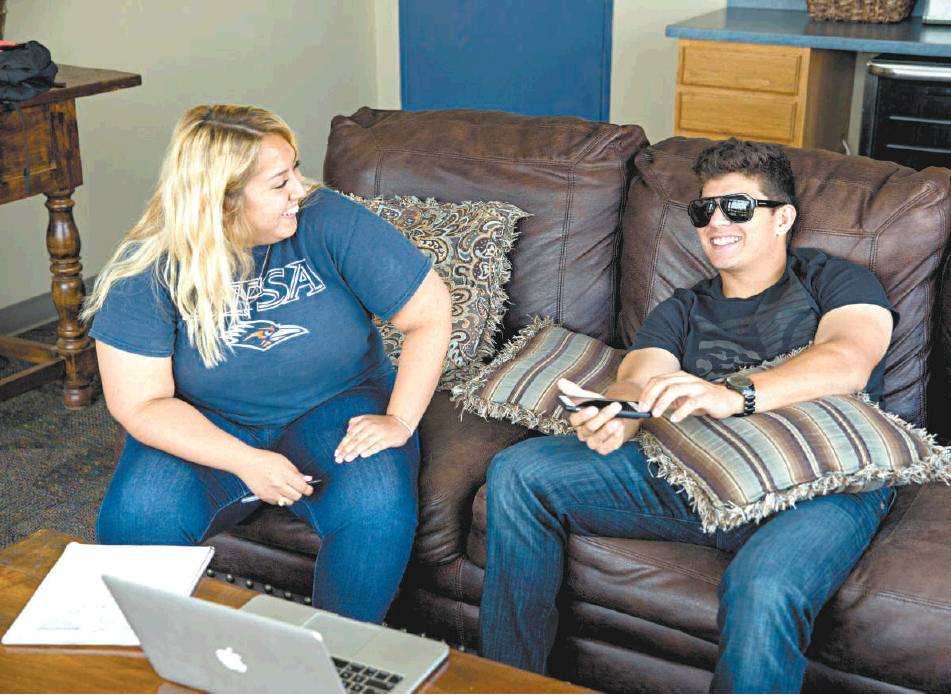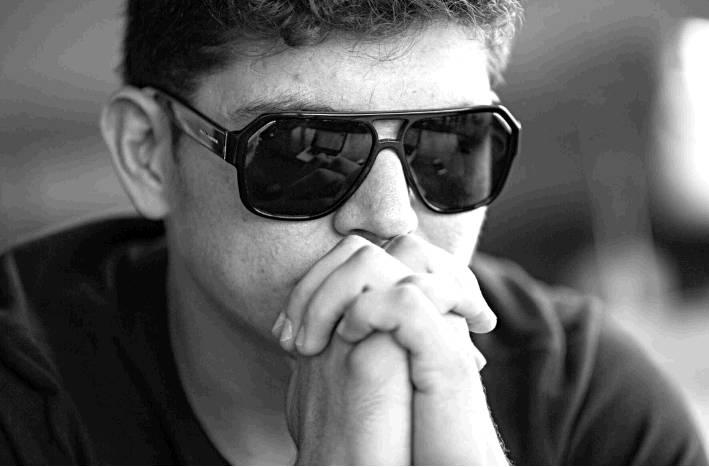MISSIONS
Learning the language
ESL classes help Spanish speakers adapt to society
By David Hinojosa STAFF WRITER
Learning English is one thing. Being able to function in an English-speaking society is another, and graduate students from UTSA are aiming to help several Spanish-speakers on the Missions’ roster achieve both things.
As part of a program designed by its major-league affiliate, the San Diego Padres, three Missions are taking English as a Second Language classes.
“The importance of this program is to give them awareness of another language and to help them immerse,” said Melissa Gomez, one of the program’s instructors. “That’s the whole point of the program — immersion. You don’t want to throw them in the water and hope they swim without some basic skills on how to float. This program helps them feel comfortable that they can do what an average English speaker can accomplish.”
Gomez and Kamaria Nixon-Jones are two of the program’s instructors. Both are in the Teaching English as a Second Language master’s program at UTSA. Their pupils include infielder Luis Urias of Mexico, outfielder Alberth Martinez of Venezuela and pitcher Enyel De Los Santos of the Dominican Republic.
The classes are divided into two levels — one for beginners and the other advanced. The players attend class in 30-minute, one-on-one sessions on the afternoons of most home games at Wolff Stadium.
Beginners are taught basic grammar. Advanced lessons focus on American culture and basic social skills.
“The program is very beneficial for the players because any time you are in a foreign country for an extended period of time, it benefits you do know the language at least enough to be able to function in society, whether that’s paying your bills, going to the doctor or being able to order your food,” Nixon-Jones said. “Also, you are able to teach them culture. You cannot have language without culture, so it’s intertwined.”
Martinez arrived in the United States to play baseball with the Padres’ Class A affiliate in Fort Wayne, Indiana. It was a different world than he was accustomed.
“I was scared because I didn’t know what anyone was saying,” Martinez said. “I was saying, ‘OK,’ but I didn’t know what anyone was saying.”
In Indiana, he stayed with friends from Venezuela. One encouraged Martinez to try to speak English as often as possible.
“They told me, ‘you have to learn English. What are you going to do when you go to another city? You have to learn,’ ” he said.
Martinez feels comfortable with his English-speaking skills. He uses the classes to maintain what he’s learned.
Urias sees the benefits both on and off the field.
“Our life is not to play baseball only,” Urias said. “We have to live life, and this helps us a lot. I think I’m getting better speaking with the coaches and other people. I can express myself when I speak Spanish, of course, but it’s helped me a lot so far.”
Urias hails from Magdalena de Kino, located in Sonora, the Mexican state that borders Arizona and New Mexico. His hometown is about 50 miles from the border.
Because of that he was exposed to English enough to have a base knowledge.
“Fortunately, all of the players had some English language classes growing up in their native countries, so they have the basics down,” Nixon-Jones said. “But it is important to immerse yourself when you are in a foreign country. Otherwise you couldn’t really function. Already, in the month and a half since we’ve been teaching the players, you can see the shift in confidence. Players who weren’t as proficient, they’ve become more comfortable speaking English.”
The program’s importance is punctuated by the fact that almost a third — 29.8 percent — of Major League Baseball players on 2017 opening day rosters are from Latin American countries, according to the commissioner’s office.
The Padres offer classes to all of their minor-league affiliates from the Dominican Summer League to their Triple-A club in El Paso.
Vicente Cafaro coaches infielders for the Padres’ Arizona League club and also oversees San Diego’s Latin American player development. As part of that job, he supervises the Padres’ ESL program.
“As you know, we’re in a different country that speaks a different language and has a different culture,” said Cafaro, who is from Venezuela. “This allows young Latin American players to learn a little bit more and adjust to their new environment.”
About 70 players in the Padres’ minor-league system are taking classes.
“They came from another country, so they are brave to tackle this,” Gomez said. “To have a program targeting those specific tasks, it might take a couple of lessons, but they are going to learn it.”
Cafaro is familiar with the plight.
He came to the United States 13 years ago to play college baseball. He played in the Texas Rangers’ farm system in 2009 and said there was a similar language program in place then. Cafaro said such programs are the norm in MLB.
“This isn’t like English 101 class in college,” Cafaro said. “These are communication survival skills.”
Everyone on the team benefits. Language can serve as a barrier to team chemistry.
“I’ve seen in the past, you can tell there are different cliques and factions,” Missions public relations director Rich Weimert said. “The fact a lot of our Latin players are getting used to English and getting better with it and more confident with it is apparent in the clubhouse. People are more likely to socialize together. What goes on in that clubhouse usually follows them to the field.” dhinojosa@express-news.net Twitter: @hinojosa_david


